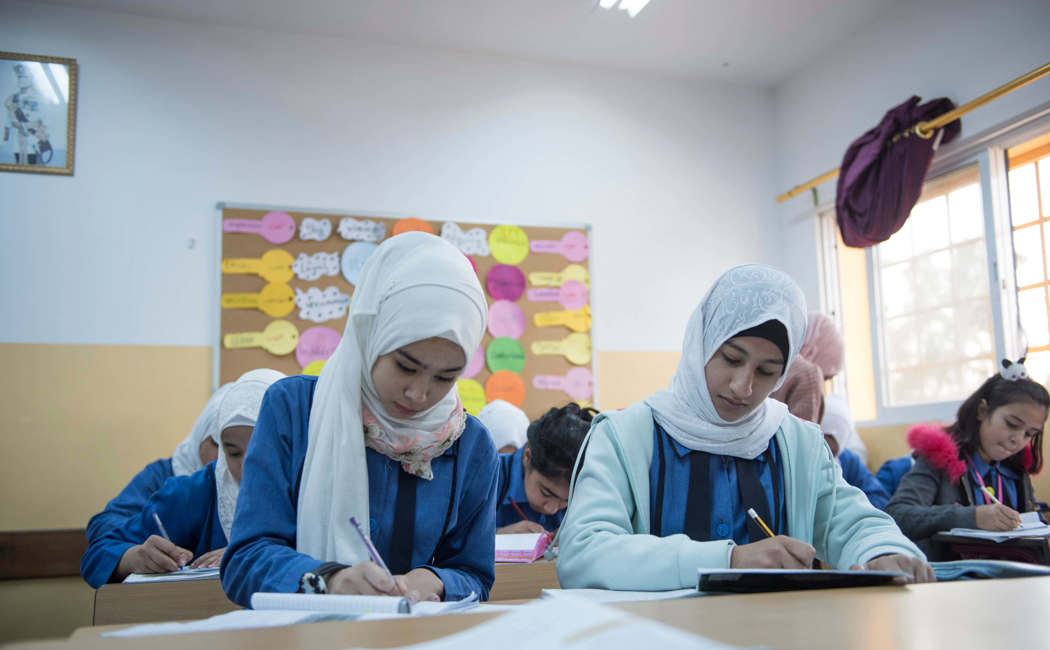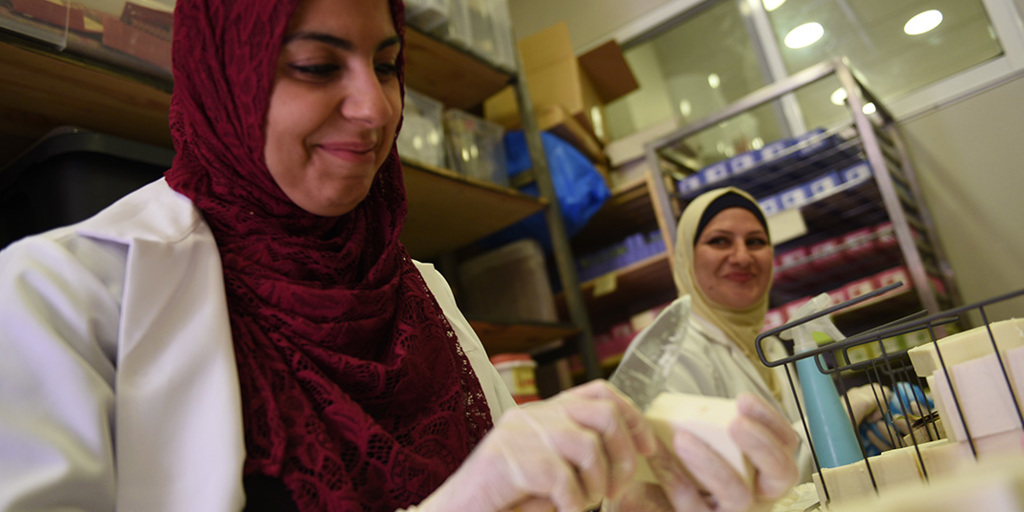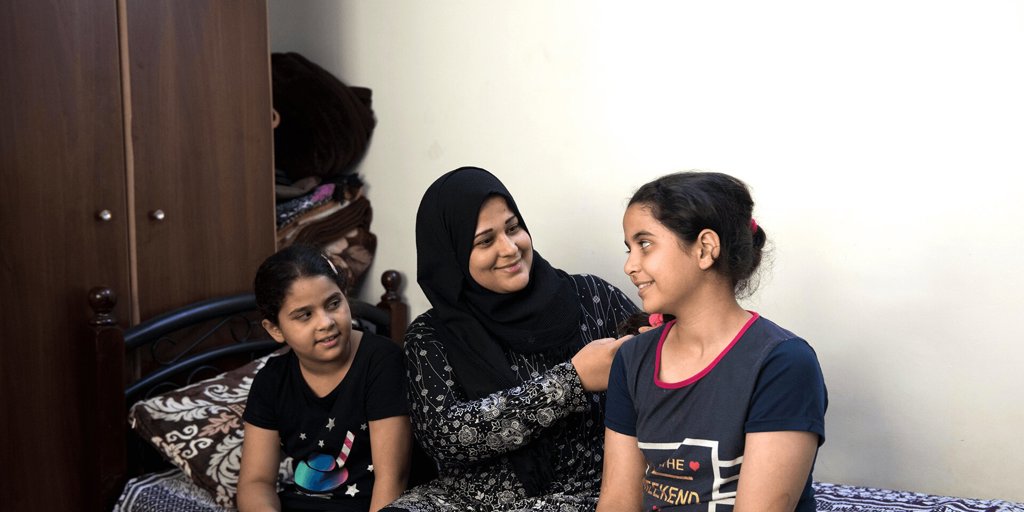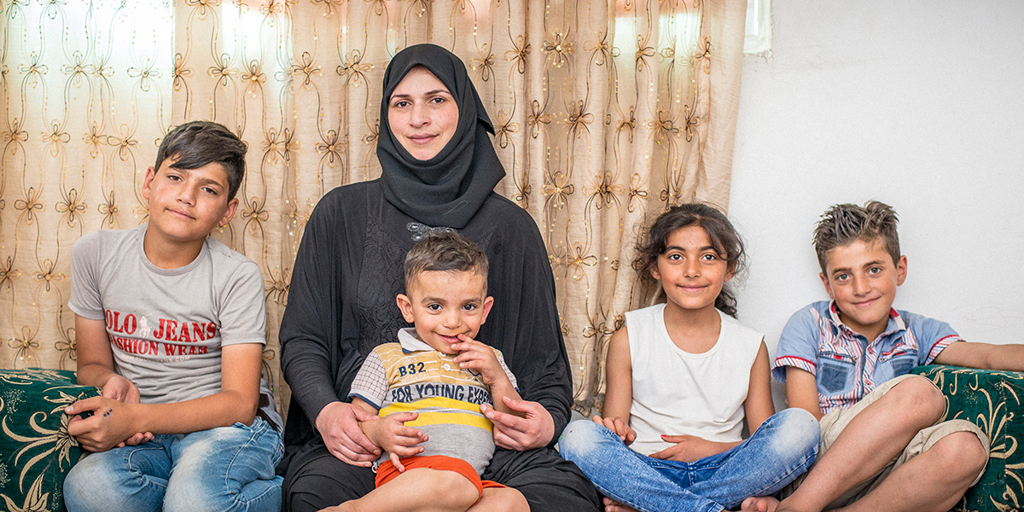If class sizes in Australian schools seem large, spare a thought for children in Jordan, who are often taught in groups of 50 at a time.
Educating children is just one of the challenges for a country that has absorbed more than 650,000 Syrian refugees since 2011 – and undoubtedly many more that haven’t registered with UNHCR.
“School capacities and infrastructure is a huge, huge issue,” says Zeina Jadaan, UNHCR’s Head of Education in Jordan, and an expert in humanitarian and development policy.
“The situation is quite overwhelming. But we’re working closely with the Jordanian government and other agencies, and donors, to make sure we can uphold our commitment to children’s education.”
The double shift
Jordan has always been a place of refuge for displaced people in the Middle East, even though it lacks the wealth-creating natural resources of its neighbours. As far as back as 1960, when Palestinian refugees fled across the border, some schools adopted a “double shift” system, with one cohort taught in a morning session, and another group of children in the afternoon.
Today, the double shift is normal, as schools simply can’t accommodate all students at the same time.
“The first shift starts at 8am and ends by 1.30pm, and the second shift starts at 2pm and ends at around 5pm, according to the information we have from the Ministry of Education,” says Jadaan. “The double shift is not the preferred system, for children, families or the Ministry, but it’s the only solution for the time being.”
As well as Arabic – their first language – children study English, mathematics, social studies and science, among other subjects. Girls and boys may be taught together in primary school, but are separated for classes in high school.
While school participation rates are relatively high for refugee children in primary school (129,000 Syrian children attended primary school in 2020-21), they drop dramatically at secondary level.
The challenges faced by refugee children are well-documented, but still heartbreaking.
“The key reason is the economic situation, where 80 per cent of refugees live under the poverty line,” says Jadaan. “The need for children to make an economic contribution to the family leads to school dropout, particularly for boys, while for girls, child marriage remains an issue.”
As UN High Commissioner for Refugees, Filippo Grandi, noted in an education report released last week: “Once access to education has been lost, it is not easy to reclaim it.” But UNHCR, along with other agencies, donors and the Jordanian government, is rising to the task.





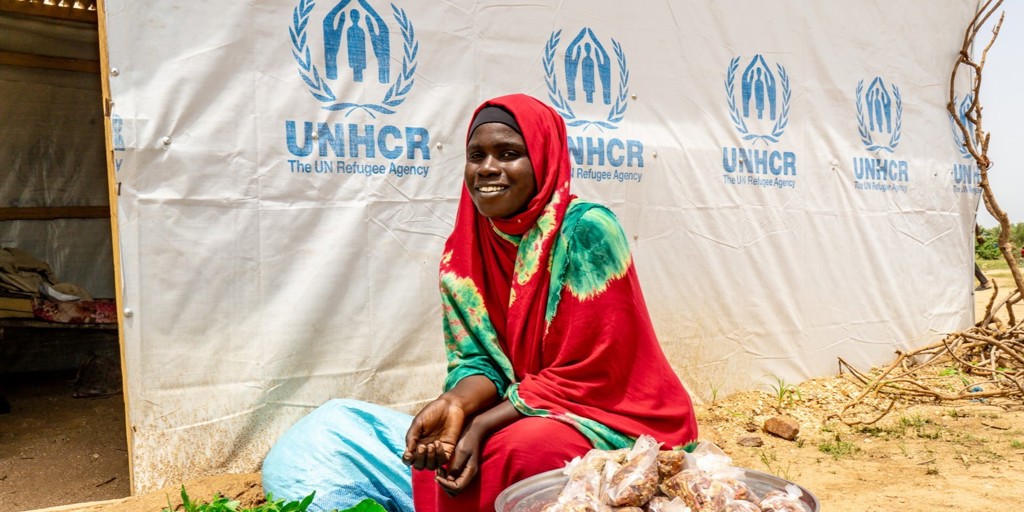










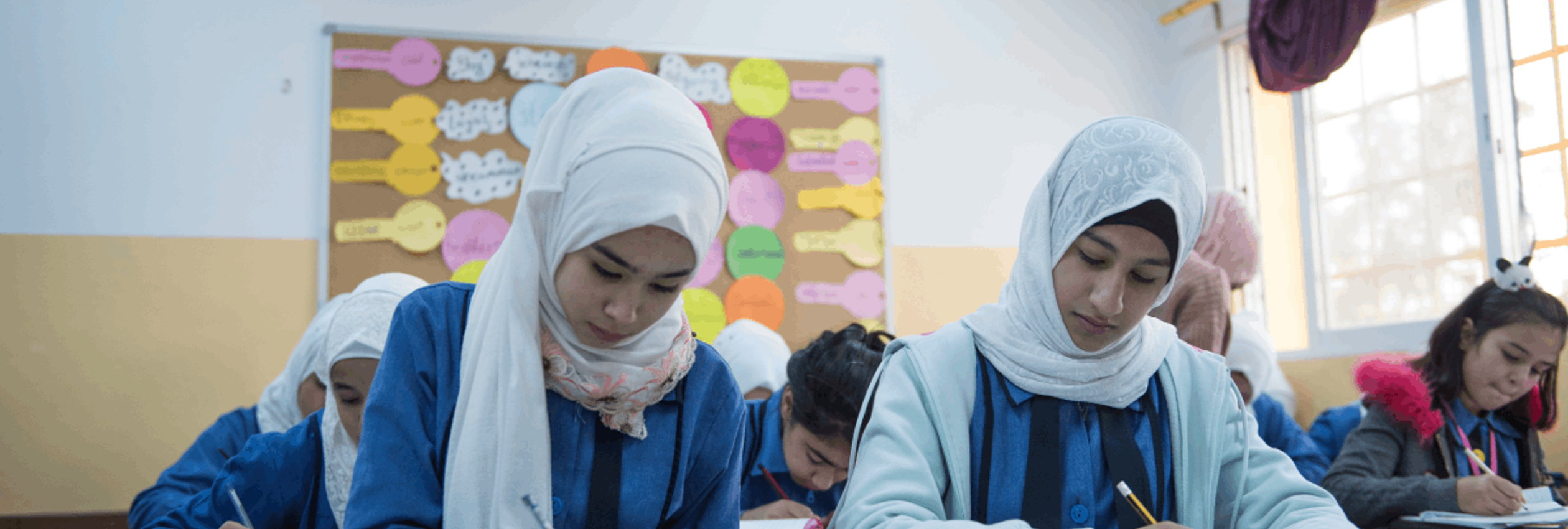
 Jordan
Jordan
